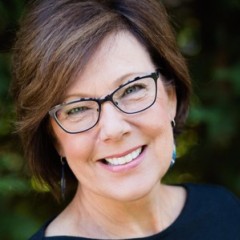What do women in agriculture need? What do they want? I asked Canadian women who are farmers or in agriculture. The open forum for response on social media was complemented with phone calls and emails in which women thoughtfully responded with their wants and needs.
1. Women need healthier tax attitudes
Women need farm families to think outside of tradition and embrace creative tax solutions.
“Why do we keep repeating the same things over and over again?” one woman asked. “Why are farmers stuck in their thoughts and actions?”
Read Also

What makes a leader?
It’s not gender that makes an effective leader.
This was a repeated question and an area that mystified business women in agriculture. The fact that farms do things for “lifestyle” or because “that is the way we always did” or “to avoid tax” did not make sense to them.
A lengthy discussion on farm tax resulted in identifying a root problem of tax avoidance and the systems that support it. For many farms, tax avoidance increases debt load, particularly on depreciating assets.
There is no business in the world that supports this as a credible financial strategy when without cash reserve. Wisely used it can be amazing for established farms to put investment back into agriculture, but for small farms and those farms with little equity or cash, it is a minefield.
Women know this and urge that these traditional systems be challenged within agriculture and within the tax and accounting community. Creative solutions are required for agriculture to move forward.
2. Women need farm partners to recognize the business of farming
This has been an issue for the 40 years that I was farming but I had assumed, incorrectly, that today’s beginning farmers, who often have extensive education, would be more inclined to sit down for business meetings. Not so. This remains an area of frustration for women who are farming or with farming partners.
Where does that come from? Perhaps it was the “dumb farmer” or “dirty old farmer” image that many at one time had. I recall being at a formal event where an urbanite knew me as a farmer.
I met one farm woman at a conference. Looking at my black dress and pearls she said: “That really works for you. Aren’t you usually in coveralls standing in a field someplace?” Ouch. But it does speak to a cultural image that may or not be lurking in our own homes.
Parents must be sensitive to ensuring that agriculture is seen as a profession at home and at all times, and carve out space for this important topic. This nurtures an interest in business and the business plan and becomes a new culture within agriculture.
Money is a great motivator for behavioural change when it is respected. Respecting ourselves enough to appreciate that we are in the business of agriculture is critical. An outstanding question is: Should we seek accreditation, particularly in financial literacy, to farm?
3. Women need responsible lenders
While it is true that the past history of lending has neglected women in business and in farming, that is quickly fading. Research up to 2012 indicated that women with the same credible loan proposal were declined more than half the time based on gender.
I share that experience with many others. As a young woman who owned and farmed her own land, I was told by a bank manager I would never succeed because I was a woman, and another told me I would never succeed because I did not have an education. It was tough to get lending.
Women now are also asking for a different discipline from financial institutions, claiming money is too easy, particularly for their established and beginning male partners and specifically for depreciating assets. The pressure to “sign” is huge even if the loan simply does not make sense. They would rather see responsible lending that encourages cash reserves for the procurement of appreciating assets.
4. Women need more support in succession planning
One woman captured this need with her comments: “Our present situation stems from past generations not wanting to make hard decisions. We are repeating the same thing again.”
It is pretty hard to grow as a farm, as a family and as an individual when there is a lid on family succession discussion. Women want more access to tools and people to promote, navigate and successfully plan for their future.
In my travels I have found this to be the greatest area of “hurt” for farm men and women and yet it remains a silent elephant on the majority of Canadian farms.
5. Women need to be respected and heard
The pain was evident in her voice as one woman described to me how she managed the family farm with the assumption of being the one next in line — until she married.
With a new male on the place, the sole daughter suddenly became less capable and she watched in bewilderment as the men now made decisions without and around her.
This is a cultural default and it is a challenge for men to check. I encourage men to ensure that the culture they are creating is inclusive, equal and conducive for a successful female heir. Women also need to hold space for themselves, and they need to own it. Use your business voice.
It really is about changing behavioural patterns.
6. Women need lower energy costs and universal day care
Many women work off the farm either by choice or necessity. “This is Canada,” a young farming mother railed. “Why are we paying the highest price for gas and fuel in the world?” For moms who travel long distances on rural roads to get to work the price of fuel is a handicap. Why do we pay so much for fuel?
Perhaps it is time to challenge the heavy taxation of all Canadians so that working women and men can engage more freely in the economy.
Children growing up on the farm are often left in circumstances their parents are uncomfortable with but have to accept because of the lack of appropriate care. This is an age-old problem.
My grandmother often spoke of the anxiety of running between the barn and the house as she tried to milk cows and keep an eye on five children. I recall my anxiety, missing an early bus drop-off during a blizzard because I was working.
Farm children can be at risk because rural day care does not exist or is prohibitive in cost. An Alberta mom pays $950 to $1,200 per month per child for licensed day care. A mom in Quebec pays $175 under universal licensed care. It is simple math. Families need accessible and universal day care.
7. Women want more knowledge
The desire and curiosity for more knowledge came from all places and ages of women. Women who are new to the farm want more knowledge about areas such as agronomy or marketing, so they can fully participate in the discussion. Women already farming are not looking for a “you can do this” conversation. They are already doing it.
Nor do they support narrow women-only gateways for business. They want greater access to learning on subjects such as advanced financial literacy, advanced business strategy and marketing, strategic planning and employee management.
They need courses that are taught in an open collaborative manner and in a way that the learnings can be communicated back to the farm.
Bringing it all home
Communication remains a key for farm families to grow and for individuals within those family units to feel worthy. When the focus is on the tradition of farming without an appreciation for business, without a plan and without creative tax and lending solutions, the whole farm suffers.
For women there are the hurdles of distance, childcare and cost as well as the lack of learning events to take them to higher ground.
Thank you to the women who participated for this article and who clearly expressed that they see all of these challenges as opportunities for change, growth, prosperity and empowerment.
Brenda Schoepp is completing her MA Global Leadership and is an international mentor, author and speaker. She may be contacted through her website brendaschoepp.com.












